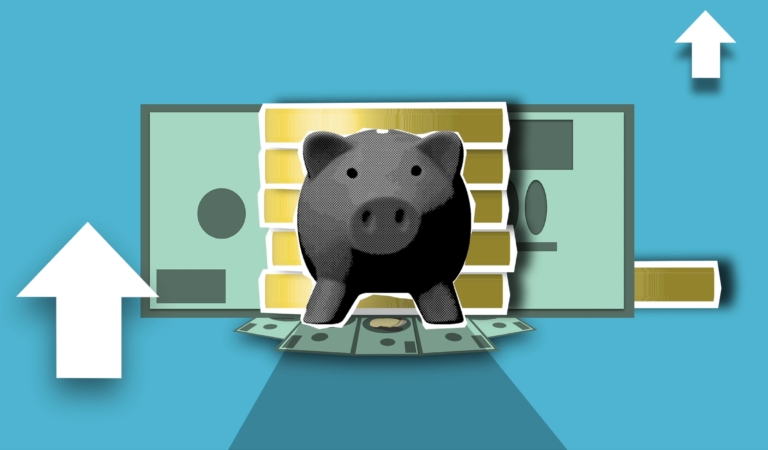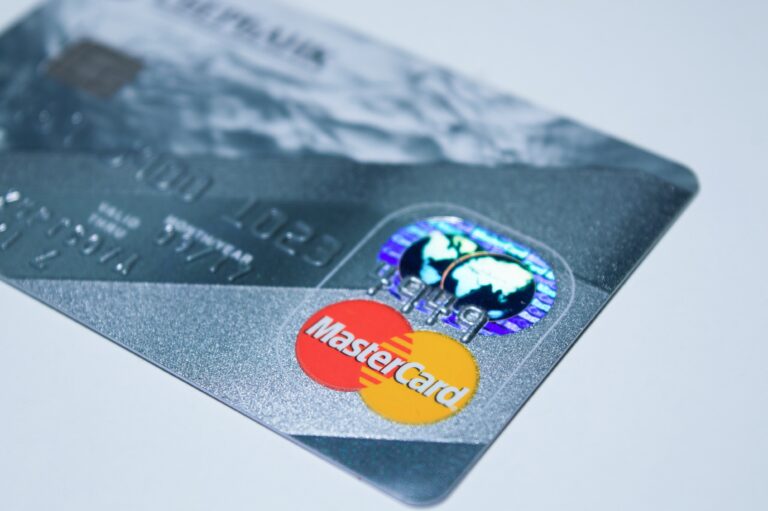Debt consolidation is a financial strategy that can help individuals who are struggling to keep up with their debt payments. It involves combining multiple debts into a single loan with one monthly payment. If you’re considering debt consolidation, there are several factors to consider before making a decision.
In this article, we’ll explain what debt consolidation is, how it works, and whether or not it’s the right choice for you.
What is Debt Consolidation?
Debt consolidation is basically taking out a new loan to pay off multiple existing debts. It’s like cleaning up a messy room – instead of having all your clothes and belongings scattered around, you gather them up and put them neatly into one place. By consolidating your debts, you can simplify your payments and potentially lower your interest rates. Think of it as hitting the reset button on your debt and giving yourself a fresh start. Of course, like any financial decision, it’s important to weigh the pros and cons and make sure it’s the right move for you. But if you’re drowning in debt and looking for a way to simplify your finances, debt consolidation might just be the solution you’ve been looking for.
How Does Debt Consolidation Work?
Debt consolidation can be a helpful tool for managing debt. Essentially, it involves combining multiple debts into one payment, ideally with a lower interest rate, to make it easier to pay off. There are a few ways to consolidate debt, such as taking out a personal loan or transferring balances to a credit card with a lower interest rate. However, it’s important to note that using home equity loans, lines of credit, or cash-out refinancing can put your home at risk if you’re unable to make the payments. It’s important to carefully consider all options and make a plan to pay off the debt in a timely manner.
Should I Consolidate My Debts?
When you have multiple debts with high-interest rates, it can be overwhelming to manage them all. Debt consolidation is an option to consider in this situation, but it may not be the right choice for everyone. It’s important to weigh the pros and cons before deciding if debt consolidation is right for you.
Debt consolidation involves combining all of your debts into one loan, ideally with a lower interest rate. This can make it easier to manage your payments and reduce the total amount of interest you pay over time. However, it’s important to note that some forms of debt consolidation, such as home equity loans or cash-out refinancing, can put your assets at risk if you’re unable to make payments.
Consolidating your debt may also extend the repayment period, resulting in paying more interest over the life of the loan. It’s important to carefully review the terms and make sure you’re able to afford the payments.
In short, debt consolidation can be a helpful tool for managing high-interest debt, but it’s important to carefully weigh the potential risks and benefits before deciding if it’s right for you.
Balance Transfer
If you have credit card debt that you’re struggling to pay off, one option to consider is a credit card balance transfer. This involves transferring the balance from one or more high-interest credit cards to a new credit card with a lower interest rate, or ideally, a credit card with a promotional interest rate of 0% for a specified amount of time. The goal is to consolidate your debt into one place and save money on interest charges, making it easier to pay off your balance. However, it’s important to carefully consider the pros and cons of this option before making a decision.
Before you decide to do a balance transfer, it’s important to research the terms and conditions of the credit card you’re transferring your balances to. Look for a card with a low-interest rate and no balance transfer fees. Additionally, consider the length of the introductory period for the low-interest rate, and whether you’ll be able to pay off your entire balance during that time. If you can’t, you could end up with a higher interest rate than you had before the balance transfer.
Overall, a credit card balance transfer can be a helpful tool in consolidating debt, but it’s important to do your research and make sure it’s the right choice for your financial situation.
Personal Loan to Consolidate Debt
A personal loan is a type of loan that has a fixed interest rate and a set repayment period, usually ranging from one to seven years. The good thing about a personal loan is that it often comes with a lower interest rate compared to credit cards. By consolidating all your debts into one personal loan, you’ll be paying interest on a single balance rather than multiple balances. What’s more, some personal loans offer additional insurance options that you can purchase, such as disability insurance in case you become ill or injured, job loss insurance, or life insurance in the event of your passing.
Home Equity Loan Or Line of Credit
A home equity loan or line of credit is another option for consolidating debt. This type of loan is secured by your home’s equity, which is the difference between your home’s market value and what you owe on your mortgage. You can borrow a lump sum with a home equity loan, while a line of credit allows you to borrow as needed up to a certain limit. The interest rate on a home equity loan or line of credit is usually lower than credit card interest rates, but it may be higher than the interest rate on a personal loan.
It’s important to note that with a home equity loan or line of credit, your home is used as collateral. If you’re unable to make your payments, you could risk losing your home. It’s also important to have enough equity in your home to qualify for this type of loan.
Cash-out Refinance to Consolidate Debt
A cash-out refinance is another option for consolidating debt. With a cash-out refinance, you take out a new mortgage for more than what you currently owe on your home. The difference between the old mortgage and the new one is given to you in cash, which can be used to pay off your other debts. This option can be useful if you have a lot of equity in your home and can qualify for a lower interest rate than what you currently have on your mortgage. However, keep in mind that this will increase the amount of debt you have on your home and could potentially increase your monthly mortgage payments.
It’s important to carefully consider the long-term financial implications before deciding if a cash-out refinance is the right choice for consolidating your debt.
What You Should Avoid When Consolidating Debt
When it comes to consolidating debt, it’s important to be cautious of certain options that could end up doing more harm than good. It’s crucial to carefully consider all of your options and do your research before making any decisions.
Vehicle Title Loans
Title loans may seem like a quick and easy way to consolidate debt, but they come with high-interest rates and steep fees. If you can’t repay the loan on time, you risk losing your car. Many borrowers end up in a cycle of debt, taking out new title loans to pay off the old ones. It’s important to explore other options for consolidating debt before resorting to a title loan. Look into personal loans, credit card balance transfers, and home equity loans or lines of credit as safer and more cost-effective alternatives.
Debt Settlement Relief Companies
The Consumer Financial Protection Bureau (CFPB) warns that debt settlement companies can be costly and risky. They often charge high fees and advise stopping credit card payments, leading to extra fees, penalties, and creditor collection efforts. Some creditors may not work with your chosen company, and it may not settle all your debts, negatively impacting your credit scores and future credit opportunities.
Debt settlement could leave you in more debt than when you began. Most companies ask you to stop debt payments for negotiation purposes and to collect settlement funds, causing your original debt to grow due to late fees, interest, and other charges. If the company doesn’t settle most of your debts, the penalties and fees on unsettled debts may negate any savings on settled debts. Carefully evaluate your options before working with a debt settlement company and be skeptical of any quick and easy debt relief promises.
When seeking debt management options, watch for warning signs that a debt relief company may not prioritize your interests. The CFPB advises against companies that charge fees before settling debts, promise specific debt reduction percentages, or promote a “new government program” for personal credit card debt relief. Be cautious of companies guaranteeing debt elimination or instructing you to stop communicating with creditors. Claims of stopping all debt collection calls, lawsuits, or paying off unsecured debts for pennies on the dollar should also be treated with skepticism. Thoroughly research any debt relief company before engaging their services to avoid potential scams and adverse credit consequences.
PRO TIP:
If you’re considering working with a debt settlement company, it’s important to do your research first. Before making any decisions, reach out to your state Attorney General and local consumer protection agency to see if any complaints have been filed against the company you’re considering. Some states even require debt settlement companies to be licensed, so it’s worth checking with your state regulator or Attorney General to see if the company is licensed to operate in your state.
Another option to consider is working with a non-profit consumer credit counseling service, which can help you develop a debt management plan that fits your budget and works with your creditors to reduce your debt. They can also provide financial counseling and help you develop a budget.
Consulting a bankruptcy attorney is also worth considering, as they can help you understand your options under the law. Some attorneys even offer free initial consultations.
It’s important to note that debt forgiveness may have tax consequences, as any forgiven debt may be counted as taxable income on your federal income taxes. Be sure to consult with a tax advisor or tax attorney to understand how forgiven debt may impact your taxes.
The Bottom Line
Debt consolidation can help simplify payments and potentially lower interest rates. Personal loans and credit card balance transfers are safer and cost-effective alternatives to title loans and debt settlement relief companies. When considering consolidating debt, carefully weigh the pros and cons of each option, and be wary of companies that make unrealistic promises. Research thoroughly before making any decisions and consult with professionals, such as a bankruptcy attorney or tax advisor, as needed.







